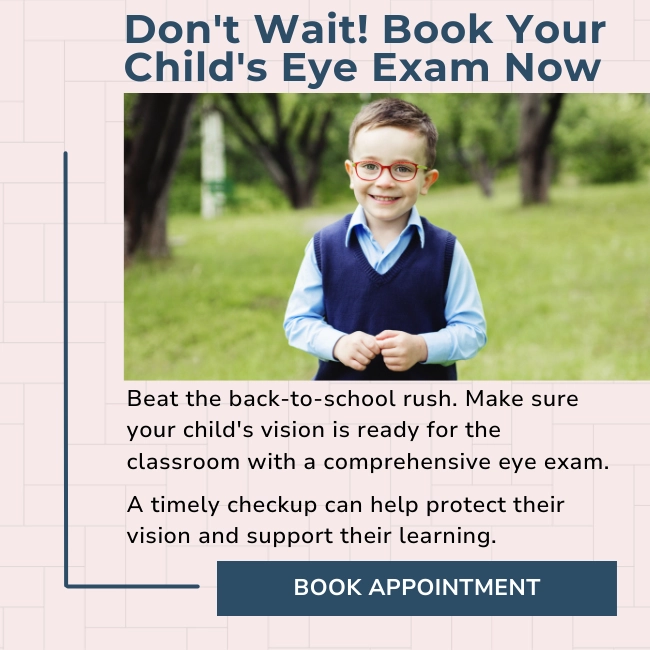Dry, irritated eyes are uncomfortable, but can they also be responsible for your headaches? If you frequently experience both symptoms, you may be wondering whether they are connected.
Research suggests that dry eye disease and headaches, particularly migraines, may be linked. Understanding this connection can help you seek appropriate treatment and find relief. If you suffer from persistent eye discomfort, it may be beneficial to explore dry eye therapy or schedule an eye exam to assess your symptoms.
What Is Dry Eye Disease?
Dry eye disease occurs when the eyes do not produce enough tears or when the tear film does not function properly. Tears are essential for keeping the eyes lubricated and free of debris. When tear production or quality is compromised, this can lead to discomfort and visual disturbances.
Common causes of dry eye disease include:
- Age: Tear production tends to decrease with age, making dry eye more prevalent among older adults.
- Gender: Women are more likely to experience dry eyes due to hormonal fluctuations, particularly during pregnancy, menopause, or while using birth control.
- Environmental factors: Wind, smoke, air conditioning, and dry climates can contribute to tear evaporation.
- Screen times: Extended use of digital devices can lead to infrequent blinking, reducing tear distribution.
- Medical conditions: Certain conditions, such as diabetes, thyroid disorders, and autoimmune diseases, can affect tear production.
Symptoms of Dry Eye Disease
Symptoms of dry eye disease can vary but often include:
- A dry, gritty, or burning sensation
- Redness and irritation
- Sensitivity to light
- Blurred vision
- Watery eyes (a response to irritation)
If these symptoms persist, seeking professional care is important to prevent complications such as corneal damage or chronic discomfort.
The Link Between Dry Eye Disease & Headaches
The relationship between dry eye disease and headaches is not entirely understood, but studies suggest there may be a connection.
- A 2019 study found that people with migraines are more likely to exhibit dry eye symptoms, such as inflammation, tear film instability, and poor-quality tear production.
- Another study found that individuals with migraines may have differences in eye structure that contribute to dry eye symptoms.
How Dry Eye Disease Might Trigger Headaches
- Eye Strain: When the eyes are dry, they may have difficulty focusing, leading to tension that can result in headaches.
- Inflammation: Inflammatory responses in the eyes and surrounding tissues may contribute to headache development.
- Nerve sensitivity: The eyes and brain share neural pathways. If the eyes are irritated, it may trigger discomfort that extends to the head.
Diagnosing Dry Eye Disease
If you experience dry eyes and headaches frequently, we can evaluate your symptoms and determine if dry eye disease is a contributing factor.
Common diagnostic methods include:
- Schirmer’s Test: This measures tear production using a small strip of paper placed under the lower eyelid.
- Tear Break-Up Time (TBUT): A special dye is used to assess how long the tear film remains intact before evaporating.
- Slit Lamp Examination: A microscope and bright light are used to examine the eye’s surface and assess tear quality.
A comprehensive eye exam can help identify underlying causes and guide treatment recommendations.
Treatment Options for Dry Eye Disease
Treating dry eye disease can alleviate symptoms and may reduce associated headaches. The appropriate treatment will depend on the severity and underlying cause of the condition.
Over-the-Counter Solutions
- Artificial Tears: Lubricating eye drops can help relieve mild dryness.
- Ointments and Gels: These provide longer-lasting relief but may cause temporary blurred vision.
Prescription Treatments
- Cyclosporine (Restasis) & Lifitegrast (Xiidra): These medications help improve tear production and reduce inflammation.
- Steroid Eye Drops: Short-term use of anti-inflammatory drops may be recommended for severe cases.
Lifestyle Adjustments
- Blink More Often: Conscious blinking during screen use can help distribute tears more effectively.
- Use a Humidifier: Adding moisture to the air can prevent tear evaporation.
- Stay Hydrated: Proper hydration supports overall eye health.
- Wear Sunglasses: Protecting the eyes from wind and sunlight can reduce irritation.
Advanced Dry Eye Treatment
- Intense Pulsed Light (IPL) Therapy: This treatment targets inflammation and helps restore function to the meibomian glands, which produce the oily layer of the tear film.
- Radiofrequency (RF) Therapy: This treatment uses controlled heat from electrical currents to stimulate and restore the function of the meibomian glands. By improving oil flow in the tear film, RF therapy helps reduce dry eye symptoms, providing long-lasting relief.
When to See an Eye Doctor
If you experience persistent dry eyes and frequent headaches, it is important to seek professional care. Ignoring symptoms could lead to worsening discomfort and potential complications.
You should schedule an eye exam if:
- Your dry eye symptoms do not improve with over-the-counter treatments.
- You experience frequent headaches or migraines alongside eye discomfort.
- Your vision becomes consistently blurry or unstable.
- You develop sensitivity to light or increased redness in the eyes.
An optometrist can help determine whether dry eye disease is the cause of your symptoms and recommend appropriate treatments.
Find Relief for Dry Eyes & Headaches
Living with dry eye disease and headaches can be frustrating, but effective treatments are available. Managing dry eye symptoms may help reduce the frequency and severity of headaches, improving your overall quality of life.
At Trail Vision Care Clinic, we offer comprehensive dry eye assessments and personalized treatment options. Whether you need artificial tears, prescription medications, or advanced therapies like IPL, our team is here to help.
If you are struggling with dry eyes and headaches, schedule an eye exam today to find the relief you deserve.




